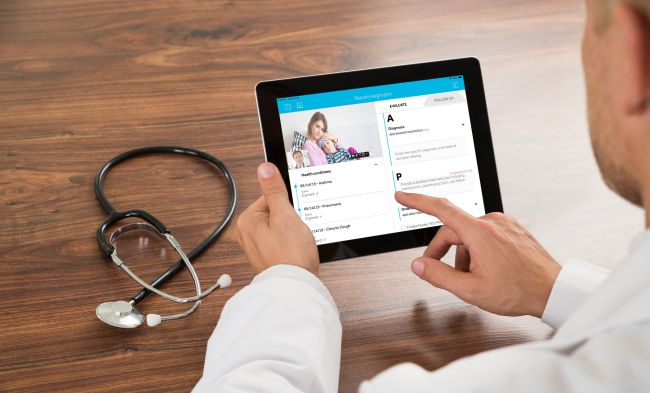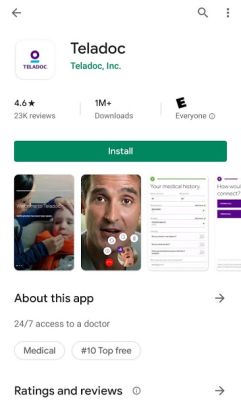
I checked out Teladoc as a last-ditch effort because I was sick and getting to my family doctor was going to be a really big hassle. My schedule was booked solid because of my classes and homework deadlines. I just really wanted to feel better and to know that I was doing everything that I could to help the situation. I was doubtful that it would work, but I figured I would give it a try because it was not going to cost too much.
Having options for the delivery of healthcare has been somewhat limited to going to your primary care doctor or a specialist. The patient has to call the office, schedule an appointment, which typically is at least a two-week waiting period, and then has to travel to the doctor’s office and usually wait alongside people who may or may not have a contagious illness. With telemedicine, help is only a call or click away and can be faster than ever before.
Technology is always growing and advancing in today’s world, providing new and exciting ways to do things. This is no exception for the world of medicine, where innovative ideas are constantly welcomed and trialed. The idea of technology, medical services and the manner in which they are combined together and delivered has been addressed utilizing virtual health. With the climate of today’s world growing more and more digital every day, this raises the question: Is telemedicine the wave of the future?
The idea for telemedicine reduces these situations by using the technology of our cell phones or computers to get expert care from licensed doctors. Although it is not for emergencies, it does provide a convenient way to access care in a faster and more affordable way based upon your insurance coverage.
In my experience, creating the account took the most time but the operators were very helpful. My co-pay was even less than it would be at my primary health provider’s office. It was so incredibly easy and I did not even need to leave my dorm room.

Telemedicine is an alternative to how people can access traditional health care by providing health-related services remotely through telecommunications technology such as phone calls, videos and apps.
On the Teladoc site that I used, it explains that they are “a mission-driven organization successfully transforming how people access and experience healthcare, with a focus on high quality, lower costs, and improved outcomes around the world.”
The use of telemedicine is a game-changer to the medical field as they have health care professionals working around the clock with all day and night care 24/7. A licensed medical professional can evaluate and diagnose for a variety of issues ranging from minor colds and injuries, call in prescriptions to your local pharmacy and offer advice and other information concerning your health.
eVisit explains there are five healthcare specialties leading the way in telemedicine: pediatrics, mental health, urgent care, pain management and some conditions that require frequent check-ups like gestational diabetes.
According to HealthWorksCollective, in the age of new technology and digital doctors coming about, medical professionals can use these developments to “view scans, assess diagnostic reports, monitor symptoms and physical progression of a medical condition remotely.” As a result, the patient and doctor can communicate and get the information they need without having to make a trip to the doctor’s office, which directly influences the line of the waiting rooms.

Even patients on Medicare have access to telehealth if they so choose. According to Medicare.gov, “Medicare Advantage Plans may offer more telehealth benefits than Original Medicare,” all from the comfort of your own home.
I believe that virtual health and telemedicine will be the fastest trend in healthcare in the future. This is not to say that you should not see your primary doctor but it is always nice to have a plan B for cases when you just can not get to the doctors. Medicare even endorses the concept because it fulfills the needs of the elderly and not having to get transportation. This can also be helpful for college students who are further away from home and who need medical expertise.
I also think that this generation is becoming an on-demand society and virtual healthcare fits those needs. While this service is not for emergent situations, virtual health can fill the gaps and needs of many people.


